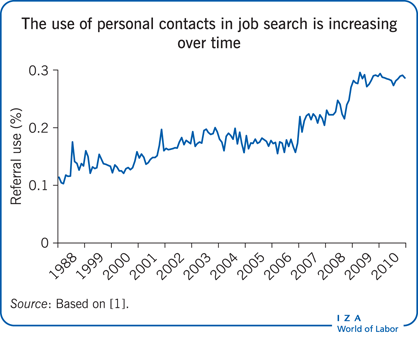Elevator pitch
Social networks, or “job-referral” networks, can help make labor markets become more efficient. Outside the firm, they help workers obtain employment after displacement and secure higher-paying jobs. They can also match highly-skilled workers to more productive employment. Inside the firm, referrals facilitate employment relationships that are more stable, productive, and profitable. In aggregate, referral networks help “grease the wheels” of a labor market that can be beset by a range of information problems. However, such networks can also be segmented along racial, ethnic, and socio-economic lines, which brings into question the effect they may have on inequality between and within different groups of workers.
Key findings
Pros
Referral networks improve labor market efficiency by increasing the information job seekers and employers have about each other.
Referral networks help job seekers find employment, and firms locate available workers.
Referred workers remain on the job longer, and are often more highly skilled.
Workers can find higher-paying jobs through referral networks.
Referral networks match more able workers to higher-paying firms.
Cons
The use of referral networks can exacerbate inequality between groups with limited social contact.
Job referrals may be a search method of last resort for workers with limited outside options.
Referral use is pro-cyclical and tied to local labor market conditions.
Good data is lacking on how job-referral networks affect labor markets.
